To experience life as a recluse, I returned back to my home country of Canada. There were several reasons for it:
Canada Is Safe
I’ve been half way across the world and have seen firsthand how little personal safety means in some parts of the planets. It is a popular thing to say that third world countries are not any more dangerous than most metropolitan areas in North America or Western Europe but this is just the most dangerously misleading statement ever.
I remember vividly when I first returned back to Canada after spending a year in South East Asia. I needed a new passport because I’d traveled so much my old one was out of blank pages, but I also used the trip back to meet with my accountant to file income tax returns and have thorough medical check-up done which after a year in countries with unsafe water and no hygiene standards in food preparation, as well as high prevalence of dangerous diseases, including Malaria, Dengue Fever and AIDS, was long overdue.
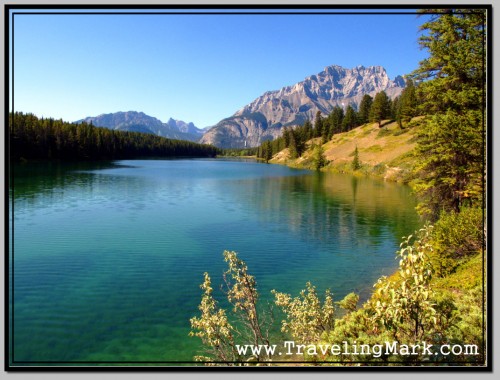
While in South East Asia, I had to adapt to omnipresent dangers, inherent xenophobia, corrupt police and criminals ready to kill at the drop of a hat. I learned to live cautiously and remain vigilant at all times to avoid becoming a victim. Just as everybody else, I put up with recurrent verbal abuse without as much as turning my head and stayed put in a hotel room every day after dark. Not that taking the abuse and keeping low profile made much difference, for in many South East Asian countries you don’t have to look for crime – crime will find you.
Needless to say, after spending a year in crime ridden countries, I returned back to Canada with a mindframe which dictated me to always remain aware of my surroundings, put up with continuous abuse and never leave home after dark. But… then I realized that I had never been abused, nevermind victimized in this country, that going grocery shopping at 11pm is normal here and done by many, and that after you’re done midnight shopping, you can safely carry your groceries home through empty back alleys and won’t experience as much as someone making inappropriate sound.
Even in my home city of Edmonton, Alberta – generally considered to be one of the most crime prone cities in Canada – you’ll have young girls strolling home alone late at night after having a few drinks in a bar and it won’t even cross their mind that it could be dangerous in any way. The worst thing that could happen to them is that they would stumble upon someone they’d like to have sex with and end up getting Chlamydia which they then merrily pass on (yep, talking from experience).
Whoever spreads the misinformation that a visit to third world countries is not any more dangerous than life in most first world cities is a delusional liar. I lived in, or visited New York, Los Angeles, Miami, London, Paris, Berlin, and many other western cities and have never experience anything remotely dangerous to every day existence in SE Asia. While living in London, UK at the end of the 20th century, I stayed in Brixton where I socialized every night by going to clubs and returning from them in the middle of the night every night. I also attended many concerts at the Brixton Academy pacing my way through the borough back and forth on foot.
Brixton, for those who don’t know, is what – to be politically correct – is referred to as a vibrant multi-cultural neighborhood. In other words, it’s considered to be a crime ridden area, a ghetto, however crime ridden in the UK is not the same as crime ridden in
I’m not trying to say that there is no crime in western cities. Crimes do most certainly occur – sometimes serious crimes – however, one must put things into a perspective before making an assumption. A chance of an encounter with a criminal on a mission in New York exists, but is negligent compared to chances of encountering millions upon millions of people going on about their lives, never engaging in criminal behavior. Most back alleys in New York do not have criminals lurking around at night. I wish I could say the same thing about back alleys in Indonesia or Cambodia.
As someone who’s well aware of dangers, I could not possibly consider any third world country for an extended stay in the wilderness. Being generally safe, my homeland of Canada was a solid bet. I would have liked to do it in other safe countries, such as Iceland, Switzerland, New Zealand, Norway, Japan or Ireland, but because of the 21st century world limitations, these options were either impractical or downright impossible.
Lots of Undisturbed Wilderness in Canada
As far as landmass is concerned, Canada is the second largest country in the world (after Russia) but our population is relatively low – only 34 million people, most of whom live within 200km from the border with the USA on the south of the country (which happens to be the longest land border between two countries in the world). With population density at mere 3.4 people per square kilometer, Canada is one of the least densely populated countries in the world.
To put it into a perspective, the population of the United Kingdom is almost twice that of Canada, but their land area is 41 times smaller than that of Canada, which using unrounded figures adds up to 75 times as many people per square kilometer in the UK than in Canada. And since vast majority of Canadians live near the border with the USA, much of the country remains very sparsely populated.
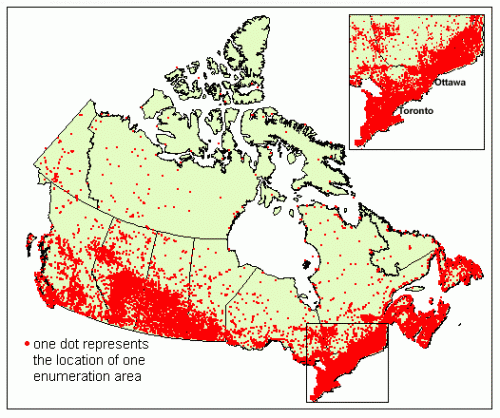
According to the 2001 census by Statistics Canada, 79.4% of Canadians live in urban centres. That means 27 Million Canadians live in the cities which account for less than 3% of total Canada’s landmass, leaving mere 7 Million to occupy the rest of the world’s second largest country.
According to the same census, only 0.3% of Canada’s total population lives in the polar territories (the Yukon, the Northwest Territories and Nunavut), yet they account for 41% of Canada’s total landmass. In mathematical terms, there is on average one person per 50 square kilometers in these territories. With this type of population density, finding undisturbed wilderness should not be a problem.
To offer a better perspective on 1 person per 50 square kilometers population density, consider this: population of United Kingdom is just over 62 Million. If their population density was the same as that of northern Canada, there would be all together 4,872 people in the UK. If Lebanon had the same population density, the country would only have 200 people (population of Lebanon is currently 4.2 Million).
Canada is simply an ideal place for people seeking remote, undisturbed wilderness. What’s better yet – not only is there nature and solitude aplenty, the vast stretches of Canada’s north are still sure to have places where no human foot stepped before. How is that for an adventure?
Canadian Wilderness is Safe
I have considered wilderness recluse in other countries, but since I wanted this to be a positive experience without compromising my personal safety, much of the world was not an option. None of the countries in the tropical regions, for instance, were an option because their jungles are simply as dangerous as their cities (with dangerous wildlife being the least of your concern).
However even if safety could be ensured, unlike Canada, most tropical countries are heavily overpopulated (while people in the first world countries work hard to multiply their wealth, people in the third world countries just multiply) so finding true solitude is difficult with chances of someone walking across you increasingly high.
Canada is also nowhere near as corrupt as many third world countries so should my recluse get noticed, it wouldn’t result in extortion or worse.
Personal safety is a no issue in countries like Iceland, Switzerland or New Zealand as they are both safe (people don’t casually murder those they randomly stumble across) and not overpopulated, but life in a 21st century world makes extended stays in countries you are not a citizen of challenging (more on this in the next section).
I Don’t Need Visa for Canada
A stay in countries other than your own typically involves several restrictions. The length of your stay is usually limited to a couple of months at the most and so are activities in which you are allowed to engage. Self sustaining life in the wild is a perfect excuse for a corrupt police officer to abuse his power and extort money from you so sticking with facilities for tourists is recommended.
Being a citizen of Canada allows me to stay in my own country indefinitely and roam the Crown Land (that’s what we call public land in Canada) freely at my own leisure. I don’t need to apply for visa to stay in Canada for as long as I need nor to explain to anyone what I want to do while I’m here.
I would love to experience life as a recluse in Iceland, as countries don’t get any safer and friendlier than that, plus Iceland is incredibly beautiful, has some of the world’s cleanest and healthiest water and coastline abundant with fish never too far away, but as a non Icelanders I’d have a lot of explaining to do to get through the loopholes and roadblocks that would green-light me for my recluse and I wanted this to be my private, secret mission I could complete without anyone looking over my shoulder. I had to ditch this idea.
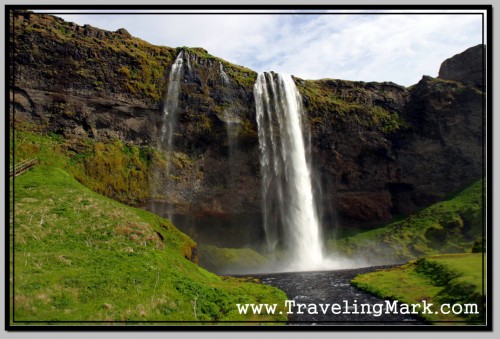
Life in the 21st century world is full of restrictions and bureaucracy. We don’t live in the hunter/gatherer society with people free to move anywhere they want and able to choose how they make their living. It makes all attempts to live the hunter gatherer style exceedingly challenging and difficult. I had to make work-arounds with these restrictions in mind which made my options few.
Survivalism in Canadian Wilderness Is Only for the Tough
I did take my shot at wilderness survivalism in tropical jungles and enjoyed it profusely. I was restricted by the above mentioned reasons, but chose a relatively safe area in Malaysian Borneo and made a deal with natives who call it their home so my presence was known and accepted, minimizing any potential of attacks.
I stayed with a community that makes their living collecting bird’s nests in a complex of caves in eastern Sarawak. To make long story short, while jungle survival had its challenges, I found the fact that coconut grows in jungles year round and takes less than a month to grow to full harvest a cheat that made survival there too easy.
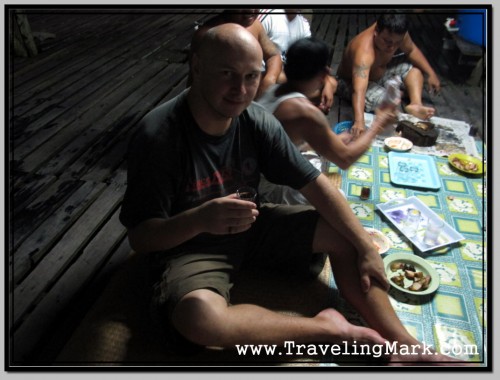
Coconut water is so full of nutrients, locating a coconut tree secures your survival at any time of the year. If you drink one coconut a day, you’ll provide your body with hydration and nutrients it needs making it possible to survive on nothing but the coconut alone.
With nourishment for your body taken care of, you’ll have a lot of energy left for everything else. Compared to that, survival in Canada is far more challenging and that makes it more interesting. Canada goes through all four seasons, including harsh winters during which survival becomes a real challenge and a test of manness. And I’m not a girl.


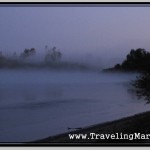
Hi, all. I agree that sometimes I get annoyed by Tuk Tuk drivers. But don’t take them on account. I’m Kety called by my friends. I’m a Cambodian, a student. You said I’m an idle. I’ve read many pages here. I found a lot of criticism here about Cambodia and her people. I agree here is poor comparing to yours. I’ve been living in Cambodia all my life but I never know the word cheating foreigners but I’ve ever known the words being cheated by foreigners. Once, a foreigner called CHRIS. He asked me to make a market research with him because he wanted to open a football club. He spent me 5$ for half a day to walk with him. But in the second day he asked me to join his business because he said he knew no one in Cambodia. Finally, we reached the agreement for 50% each for ever without contract. I worked with him for months in terms of marketing research, finding a proper football field, making promotion, and delivering flyers. Finally, when the money came into his full hands, he betrayed me and said sorry he found another partner. He is the football fiend owner. Beside this I don’t want to say something bad here. However, When I was a university student, I had many foreigner classmates. They were from Korea, Turkey, and Thailand. I found them friendly and cool. We did assignment together, made practicum together, went out together. We are close friends now. I never get a single dollar from them in any purposes. One thing I want to ask you back. Do all people in Cambodia drive Tuk Tuk or sell something on the streed? Educated people they don’t do the work. When you come here again by any senses, take a taxi, don’t take a TUK TUK.
Hello Kety,
I’m sorry you had negative experience with a foreigner. I’m not surprised, though. I wrote about it in the post about the Expat Complex:
http://www.travelingmark.com/deep-thoughts/the-expat-complex/
I wouldn’t trust any foreigner who chooses Cambodia as a place to do business. A person who chooses a country that’s inherently corrupt and crime ridden to relocate to and open a business in is himself inherently corrupt and inclined to commit or at least tolerate crime and benefit from it.
Mark